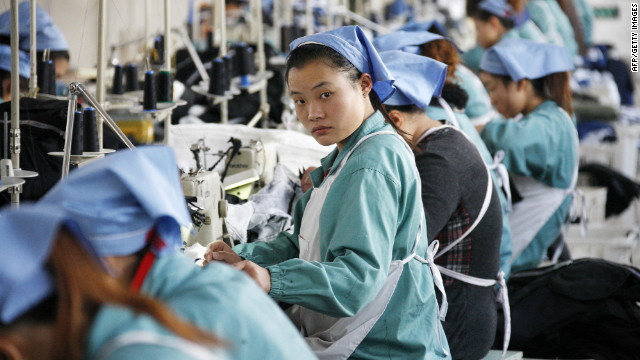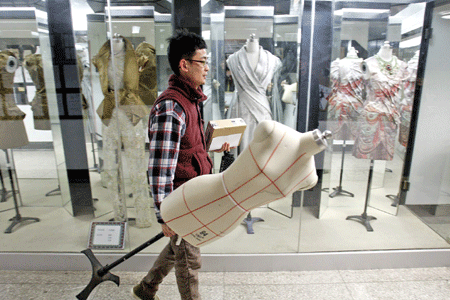|
Hong Kong’s Kenneth Fang knows first-hand about the returns to be that can be earned from taking care of China’s consumers. Fang and two brothers founded hypermarket Times Ltd. in the mainland in 1998, expanded the chain to 65 stores mostly in prosperous Jiangsu Province, and then sold the business to Lotte Shopping of South Korea for $630 million in 2009. The brothers owned 72% of the company at the time, pocketing more than $450 million. “It needed more capital and time than I have,” he said in a recent interview. But Kenneth, now in his early 70s, and the rest of his clan aren’t living off that success. Nor are they daunted by China’s recently slower economic growth and rising labor costs that have made the business landscape in the country more difficult. “People have purchasing power, especially in luxury products,” Fang says. China today is “truly where Japan was in an earlier stage of its development,” before Japan itself became a big market for consumer goods, he believes. “I don’t care about” about the recent projections for slower economic growth in the country, he says firmly. Fang is still an optimist about China. In particular, Fang hasn’t given up on a business that’s been in the family far longer than hypermarkets. “I’m still looking at the textile industry,” says Fang, who prestigious industry leadership titles and awards include honorary chairman of the Hong Kong Textile Council and chairman of the Hong Kong Research Institute of Textiles and Apparel. In 2007, he was named the “Industrialist of the Year” by the Hong Kong Federation of Industries, Hong Kong’s top industry group. This month, he was also lauded with a leadership award from Hong Kong’s Sing Tao News Corp. “My manufacturing side has been shrinking, but China still has good labor for quality products,” Fang says. Fang also has his eye on apparel retailing. “The consumer market in China means going into brand names,” he says. “But to establish a brand name is a very expensive process.” Kenneth’s father, Fang Shui Chow, moved from Shanghai to Hong Kong in 1948 on the eve of the Communist takeover, and the business he founded, S.C. Fang & Sons, went on to become one of Hong Kong’s largest textile makers. Over the years, the family has been a supplier to Gap, Liz Claiborne, and Marks and Spencer, among others. Fang senior put money into leadership grooming for his children along the way. Kenneth earned a master’s degree in chemical engineering from MIT before coming home to Hong Kong to join the family business. These days, the family’s old Hong Kong export factory still stands, in what was once a center of Hong Kong’s textile industry. Yet the neighborhood is changing. Real estate developers are tearing down what buildings that today are largely underutilized warehouses. Higher manufacturing costs in Hong Kong over the years already pushed production out; the end of textile quotas globally in the past several years has consolidated the business in China. Replacing the old factories in the streets near Fang’s headquarters: office towers for banks and service companies, themselves fleeing high costs for rent in Hong Kong’s thriving central financial district. Fang’s production today is mostly in China’s Jiangsu Province, where the competition is still tough. “Hong Kong is just my headquarters,” he says with a chuckle. It was that same steady rise in costs in Hong Kong and the mainland that years ago first gave Fang the insight to try to expand into China retailing and get closer to the end consumer there. “The Chinese market (had) been growing at a pace that no one could have believed” back in the 1960s when Hong Kong’s textile industry focuses on the U.S. and overseas markets, he says. The Fang brothers launched Times Ltd. in 1998. Yet they didn’t stop there. Kenneth’s brothers Vincent, the chairman of the Hong Kong Retail Management Association, and Jeffrey have over the years run apparel retailer Toppy International, a subsidiary of Fang Brothers that sells five labels including Episode, Jessica and Color Eighteen in more than 200 stores worldwide. Jeffrey, a graduate of the University of Wisconsin-Madison, today runs GRI, which is 25% owned by Jones Apparel of New York. GRI distributes brands such as Anne Klein New York and Nine West. Even the third generation of the Fang clan is getting involved in apparel retailing. Kenneth’s son Douglas –like dad, a MIT graduate — is working helping to oversee Pringle of Scotland, a brand that Kenneth Fang purchased back in 2000 and which last year changed creative director. Today, at a time when mainland Chinese and Hong Kong businesses are looking to buy Western fashion brands, the Fangs in retrospect look like relatively early pioneers. Novo, a retail chain based in Shanghai, is run by Alan Fang, Vincent’s son. Although those businesses and the family have their share of ups and downs over the years, Forbes estimates that the various businesses and the family’s wealth combined are worth about $1 billion, making the Fangs one of Hong Kong’s most successful business clans. Looking ahead, Fang says he is actively working with his children to set up new retail stores in China can serve for the family’s ongoing textile-related manufacturing, he says. Beyond the broad approach, he declined to say where and when those would open. Textile manufacturing in China still holds promise, he noted, but it isn’t an easy one, he says. “You have to move upmarket. I still remember 40 years ago when I just went into the industry. Hong Kong was cheap, and we got by on pricing. That tactic can’t work anymore.” Yet textiles and retailing aren’t the MIT engineer’s only interest. He has a stake in China Auto System Technologies, a converter maker that postponed a Hong Kong IPO in mid-2011. The company’s customers today include Chinese auto makers BYD and Geely. When the company started out several years ago, it was targeting customers in China’s air conditioning business. Fang he also long held a stake in Hong Kong-listed Yeebo, an electronics maker. The family’s blood is close to apparel, however. With growth in China’s consumer spending on the rise, it is hard to imagine that the Fangs aren’t going to find success. |
|
What Slowdown? China Textile, Retail Pioneer Kenneth Fang Still Sees Growth
Updated: 2012-3-23 Source: Forbes

Recommended News
Photo Gallery
Most Popular



